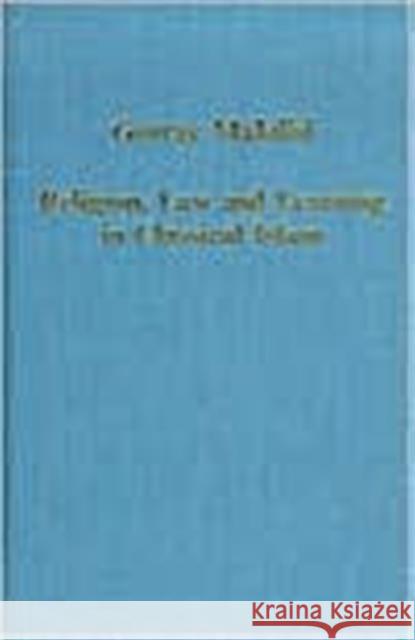Religion, Law and Learning in Classical Islam » książka
Religion, Law and Learning in Classical Islam
ISBN-13: 9780860783015 / Angielski / Twarda / 1991 / 336 str.
This second selection of articles by George Makdisi concentrates on the schools of religious thought and legal learning in the medieval Islamic world and their defence of ’orthodoxy’. The author aims to review and re-assess the implications of the conflict between, first, the ’rationalist’ and the ’traditional’ theologians (the one accepting the influence of Greek philosophy, the other rejecting it), and then between one of these traditionalist schools - the Hanbali school of law - and Sufi mysticism. One of the most important consequences of the first of these confrontations, he contends, was the emergence of the schools of law as the guardians of the faith and theological orthodoxy. The final section of the book also looks at the structure of legal learning, at the institutions themselves, their organization and the principles upon which they operated. As well as entering the debate over the existence of corporations and guilds of law in classical Islam - maintaining that they did exist - these articles further suggest links between such institutions and the evolution of universities in the medieval West, and the Inns of Court in England, and discuss the Islamic and Arabic contribution to the concepts of academic amd intellectual freedom and to the development of scholasticism and humanism. Cette seconde collection d’articles par George Makdisi se concentre sur les écoles de la pensée religieuse et de la science juridique, dans le monde islamique médiéval. L’auteur a pris pour objectif de réviser et de ré-évaluer les implications du conflit entre, premièrement, les théologiens rationalistes et traditionalistes (les premières étant ouverts à l’influence de la philosophie grecque que les seconds rejettaient) et, deuxièmement, entre l’une de ces écoles traditionalistes - l’école de droit Hanbali - et le mysticisme Sufi. L’une des conséquences les plus importantes, selon lui, de la première de ces confrontations à été la po











